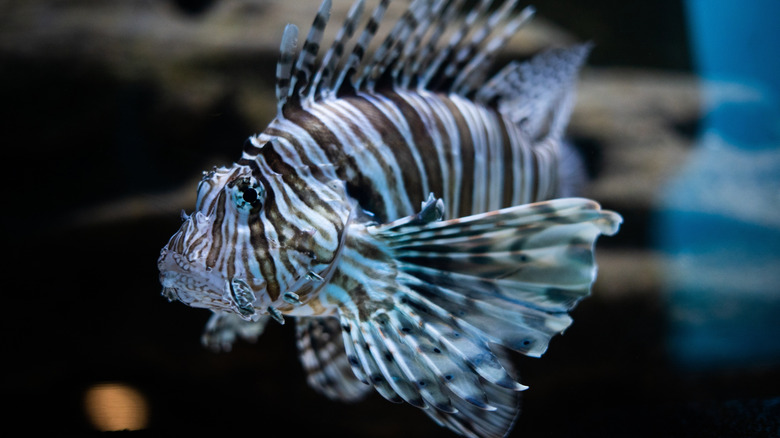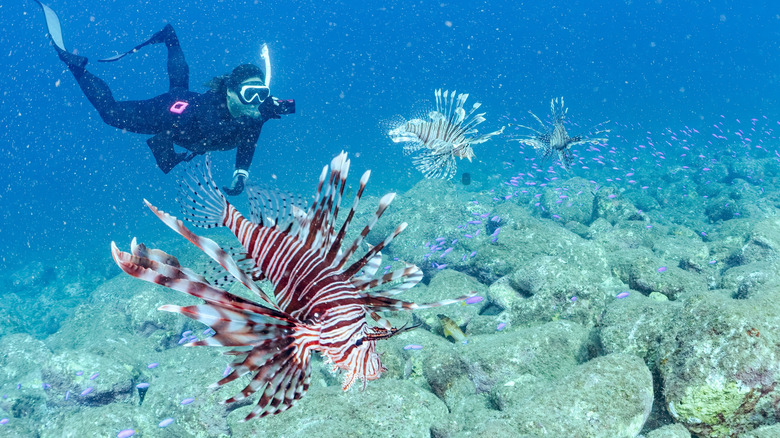Tourists Snorkeling In Florida's Shallow Waters Need To Beware To Not Touch This Beautiful, Dangerous Fish
You might recognize a lionfish — if you've not seen one in person, there's a good chance you've seen pictures of it. Spiny, flare-like fins and striking striped colors make the lionfish an aesthetic marvel, no doubt a hypnotic sight among reefs. They're commonly seen around Florida's waters, even though they're not native to the area. Over 31,000 lionfish were caught by divers off Florida's shores just in the summer of 2024. But, nicknamed "the menace of Florida reefs" by Florida Sportsman, lionfish are one of the most dangerous creatures to be aware of before snorkeling. They're not aggressive towards humans, but if you touch one of their spines, it can sting you, exposing you to its venom. A small sting can result in pain, swelling, and nausea. More serious cases can lead to heart palpitations, fainting, and even paralysis (though it's unlikely to cause death).
Lionfish are invasive to Florida's waters. They only started appearing in Florida in the 1980s, and their population in the area has since surged, continuing to grow rapidly each year. As a result of the population increase, encounters have become more likely. They're found in warm marine waters, typically around reefs and shipwrecks. Lionfish are hard to misidentify. They have a distinct, spiny appearance, typically 12 to 15 inches in length. The fish's top fin has 13 venomous spines, while five more are located on the bottom of the fish. The spines don't inject venom, but rather have a venomous tissue that's delivered when the spine stabs a victim and comes into contact with the wound.
What to do if you're stung by a lionfish and where you might encounter them
Lionfish won't sting you unless provoked, and even then, the sting is merely an instinctive mechanism rather than a purposeful attack. The simplest way you can avoid getting stung is by not touching the fish. If you do get stung, you'll likely experience symptoms within a few hours. In most cases, the wound can be treated at home. First, use gloves and tweezers to remove any spines. Wash the area and soak it in hot water. Then, put a bandage on the wound and use over-the-counter pain relievers.
Lionfish can be found all around Florida's ocean waters and even in brackish coastal zones, such as Everglades National Park, the only place in the world where you can see both wild alligators and crocodiles. They've begun invading areas higher up along the Atlantic Coast, too, including around Georgia and the Carolinas. Aside from being toxic to humans, lionfish are also highly destructive to the important reef system around Florida. They breed quickly and feed on native reef fish, particularly fish that eat algae and are crucial for keeping reefs' algae growth in balance. Florida fishing city of Destin, known for having some of the world's most beautiful beaches, hosts an annual Lionfish Festival at the HarborWalk Village, where you can learn more about the invasive species and even get to taste it.

